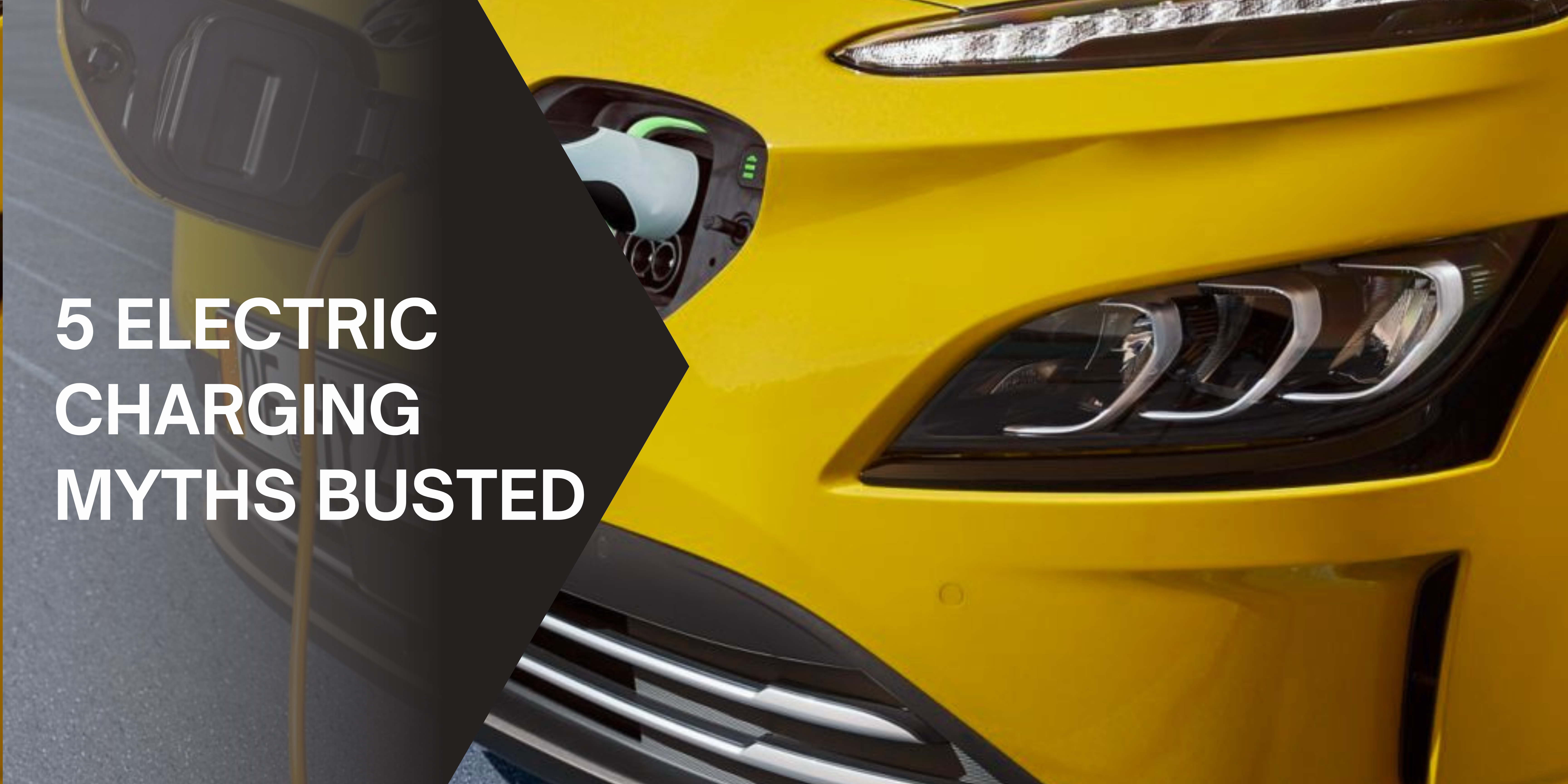5 Electric Charging Myths Busted
In today's rapidly changing automotive landscape, electric vehicles (EVs) are gaining traction as eco-friendly alternatives to traditional gas-powered cars. However, with this surge in popularity comes a barrage of information, both accurate and misleading, about EV charging. As prospective EV owners seek to separate truth from fiction, we're here to debunk the top 5 electric charging myths, providing you with a comprehensive understanding of how to optimally charge your electric vehicle.
1. Charging Overnight Will Damage the Battery
One prevalent misconception surrounding EVs is that leaving your vehicle plugged in overnight will result in battery damage. This myth is rooted in concerns about overcharging, a scenario where the battery is continually charged beyond its capacity, potentially leading to performance degradation or even safety risks.
In truth, modern EVs are equipped with sophisticated battery management systems that meticulously regulate the charging process. These systems prevent overcharging by dynamically adjusting the charging rate and shutting down the charging process once the battery reaches its full capacity. This means that leaving your EV plugged in overnight is not only safe but also an efficient way to start your day with a fully charged battery.
2. Fast Charging Always Degrades the Battery
Another common myth is that utilising fast chargers for your EV will inevitably result in accelerated battery degradation. While there is some truth to the idea that fast charging can contribute to wear and tear on the battery, technological advancements have significantly mitigated this concern.
Modern EVs incorporate advanced cooling and thermal management systems that help dissipate heat generated during fast charging. Additionally, battery chemistries have evolved, enabling them to handle higher charging speeds more effectively. Occasional use of fast chargers, especially those strategically located during road trips, is unlikely to lead to substantial degradation. Manufacturers design their vehicles to endure a range of charging speeds without compromising the overall lifespan of the battery.

3. You Should Always Charge to 100%
Contrary to the belief that maintaining a full charge is beneficial, keeping your EV battery constantly at 100% capacity can actually lead to a phenomenon known as "cell stress." When the battery is consistently held at its maximum capacity, it can place undue strain on the individual cells, ultimately accelerating degradation over time.
To maximise the longevity of your EV battery, it's advisable to maintain a state of charge between 20% and 80%. Many modern EVs come equipped with intuitive software that provides accurate range estimations based on the current battery level. This allows drivers to plan their charging sessions effectively, ensuring optimal battery health without sacrificing convenience.
4. EV Charging is a Complicated Process
A significant barrier for potential EV adopters is the misconception that charging an electric car is overly complex and necessitates specialized knowledge. In reality, EV charging infrastructure has expanded exponentially, resulting in a network of charging stations that cater to various needs.
Charging an EV is straightforward and user-friendly. Many charging stations are equipped with intuitive interfaces that guide users through the process. Furthermore, mobile applications provide real-time information about the availability and location of charging stations, making it convenient for EV owners to plan their routes and recharge stops.
5. Third-Party Chargers Are Unsafe
Concerns about safety often deter individuals from using third-party charging stations. However, not all third-party chargers are created equal. Reputable charging station manufacturers adhere to rigorous safety standards and undergo extensive testing to ensure compatibility with various EV models.
Before utilising a third-party charger, it's essential to verify its reliability and safety certifications. Established charging networks collaborate with EV manufacturers to develop charging solutions that meet industry guidelines. By exercising due diligence and selecting well-regarded charging stations, EV owners can confidently charge their vehicles without compromising safety.
Setting the Record Straight
As the electric vehicle industry evolves, it's crucial to dispel the myths and misconceptions that can hinder progress. The reality is that advancements in battery technology, charging infrastructure, and vehicle design have paved the way for a seamless transition to electric mobility. By staying informed and understanding the facts, individuals can make well-informed decisions about integrating electric vehicles into their lifestyles.



